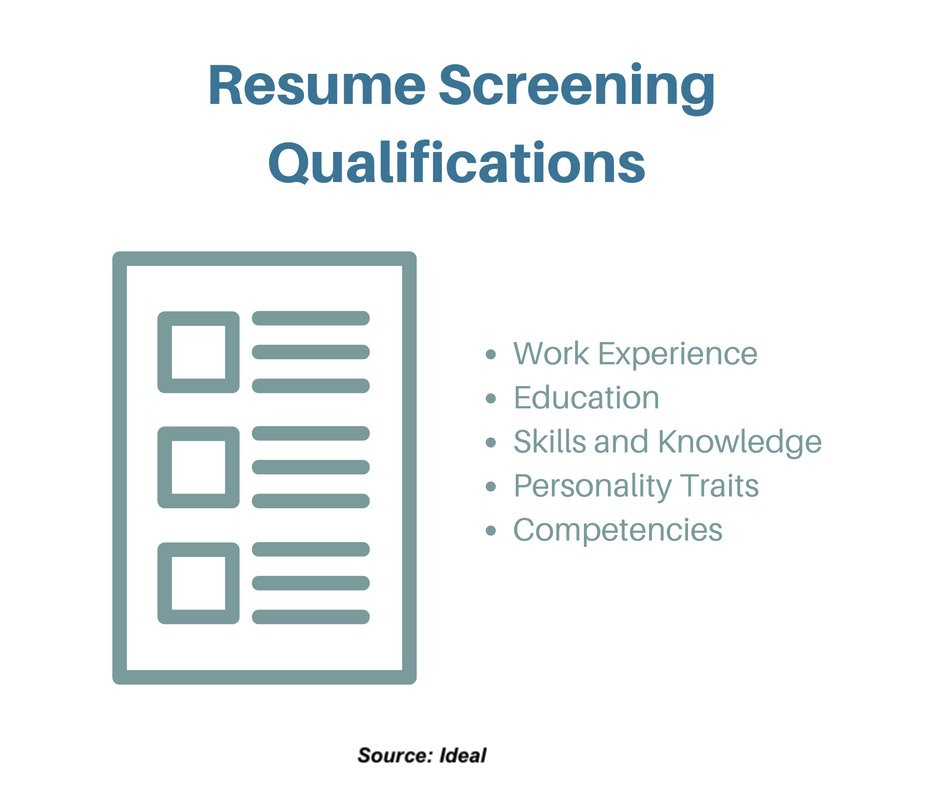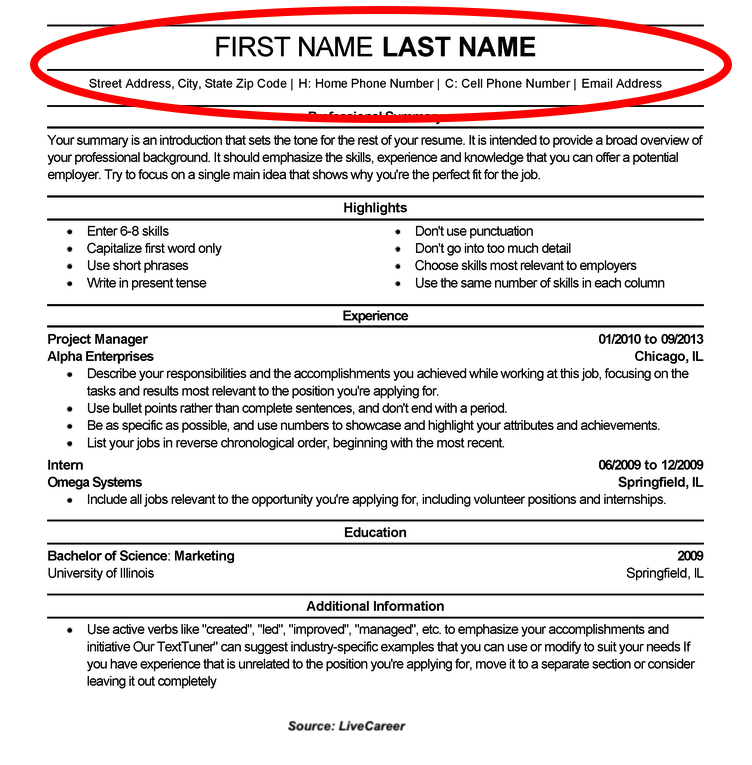Resume screening is quickly reviewing resumes while analyzing characteristics and keywords. Screening resumes can save recruiters a lot of time when hiring and lead to onboarding. It doesn’t matter if you screen resumes manually or use software; the most important thing is that you know how to screen candidates.
The reality behind job application materials is much more complicated than you can imagine. You could miss many subtleties if you don’t pay attention. In addition, when you don’t give enough importance to the resumes you receive, you risk hurting your company.
If you post a job vacancy, you should know how to evaluate resumes thoroughly and fast. If you don’t, then you can’t spot red flags nor see where diamonds lie in the rough.
This blog post talks about what CV screening means and how you should analyze the different ways in which you could screen resumes successfully to find ideal candidates.
Table of Contents:
How to screen resumes?

If you don’t want to rely on automated resume screening, let’s see what you can do when reviewing resumes yourself. Then, follow the next steps to learn more about this process:
Separate resumes by hand
It doesn’t matter how effective and detailed your job description looks; it’s very likely that unqualified applicants will still send you their CVs. For this reason, you need to come up with a checklist that presents the minimum skills, education, and experience for the job you have posted. This framework helps you sort the resumes you received into piles of no, maybe, and yes. After, you can work with more nuanced filters.
Consider the hiring market
Remember that you might not find the perfect candidate when looking at the resumes you received. The market today is hyper-competitive, and there aren’t too many talents. For this reason, managers must hire as much potential as possible according to job history and skills.
Analyze tailored messaging
Some resumes could pass your initial reviews but might not impress as soon as you dig deeper. If the cover letter and resume are generic, the applicant might have tried to send the same CV to more employers.
Serious candidates send customized resumes emphasizing qualifications and skills relevant to posted job descriptions. When reviewing resumes, you should search for professionals whose skills are not only crafted according to your job posting but can also fill within your existing team skillset taxonomy.
Look at the word choice
Many candidates use ambiguous wording to camouflage their lack of knowledge or experience. If they use phrases like “participated in” or “familiar with,” it might mean they are trying to leave you with questions rather than answers. A candidate who has been “part of” any team might not have played an important role in that team. Their presence could have been limited to silent sitting in a chair during meetings.
Potential red flags when screening in recruitment

Some resumes might reveal serious problems that can outweigh the candidate’s experience and abilities. These are some of the red flags that you need to watch for during candidate screening:
- Hopping from one job to another: Job hopping might indicate ambition; that much it’s true. However, bouncing between jobs too many times usually shows that the worker can’t commit. People leave different jobs for many good reasons, but since you might spend a lot of money and resources training and onboarding someone, you don’t want to do it for nothing.
- Employment gaps that no one can explain: While reviewing a candidate’s work history, see if there have been many gaps between jobs. Some candidates might have a good explanation for this, such as being in the military or dealing with a serious family event. However, others can’t explain why they have been out of work long.
- Static career: Resumes that present candidates who didn’t want any more responsibilities than the ones they already had indicated there’s a lack of drive.
- Too many hobbies: A candidate who talks too much about hobbies, even if those are relevant to the job, doesn’t want to build a career that much. Instead, they might see their career as something they do on the side.
- Typos and disorganization: Those who submit resumes that are difficult to read and with typos demonstrate that they can’t pay attention to details and are disorganized.
Should screening of applicants be manual or automated?
Manual and software screening have their pros and cons. For example, manual screening lasts longer than automated screening, as it involves reviewing each candidate’s resume separately. On the other hand, it might be beneficial to screen applicants manually because the software could not account for the fact that resumes are different, and some applicants prefer to replace a keyword with a synonym.
Manual screening is also helpful because it helps fill in vacancies that haven’t been advertised. Sometimes, recruiters analyze resumes that present candidates fit for work in a different department. A resume screening software streamlines review and preselects the resumes that show the most qualified candidates according to keywords.
On the other hand, it is more efficient to use resume screening software because this way, tracking candidates is easier.
What should the perfect resume look like?

The first impression left by a resume is crucial. When job applicants don’t hit the right points on their CVs, hiring managers might no longer consider them. If you don’t know what the perfect resume should look like yet, here are the points that you should take into consideration:
- Accomplishments and skills: Managers need to ensure that resumes present skills matched for the position precisely, especially in the tech sector. If, for example, you’re trying to hire a software engineer, look for a candidate who has been working on a project from start to end, finishing it successfully.
- Work experience: Most companies are looking for candidates with experience. If you have an opening for a tech support engineer job, you might want to see how many years applicants have worked in the same field. Analyze their progress at the job, too. Candidates with no relevant work experience might put in their resume relevant volunteer experience.
- Education: A candidate who has a limited amount of experience might bring education into the discussion. Degrees from colleges or universities are more valuable when accompanied by certificates in the same study area.
Is resume screening that important?
Since there are many jobs on the market and companies post job ads more than ever, there are also many candidates sending plenty of resumes. Luckily, resume screening allows recruiters to examine candidates’ backgrounds; as a result, it helps determine if someone is suitable for a job or a company’s culture.
Resume screening also lets a recruiter consider if the requirements of a job ad are realistic enough for what the job market has to offer. When no candidates have the required experience and skills, recruiters might want to adjust their expectations. So, resume screening is essential because it helps hire the best candidates for a job.
Additional Points to Consider When Screening Resumes
Resume screening also helps hiring managers to know their candidates better. But what should the perfect resume look like? How could a paper tell if someone is fit for a work position? Let’s see what matters the most in a CV:
Where a candidate is located

When you are trying to hire someone, consider their location. However, don’t rule out the applicants who don’t live close by. Have a conversation with them because they might be willing to relocate. So, if you receive CVs of candidates who live far away but have enough skills and experience for the job, don’t rule them out.
Future Plans
Next, look at the objective or summary section of a resume. Check keywords that help you identify how much experience candidates have and if they want to do something further in their careers. This is an excellent way to check if you have candidates applying for the wrong job position. For example, you don’t want to hire someone with management aspirations for an entry-level job.
Required Qualifications & Knowledge
When analyzing a resume, consider the minimum qualifications for the job you are offering. You don’t want to receive resumes of candidates who have nothing to do with the position in line. Ensure you have 2-3 essential qualifications you’re after. Further, scan resumes for keywords and relevant sentences.
Work Experience
Experience should say a lot about a candidate, yet it shouldn’t be everything. Check how applicants describe their experience at relevant similar jobs to see if they have enough knowledge to fill the vacancy in your company.
Takeaway
Screening resumes is not easy, regardless of if you use software or do it manually. However, keep in mind that even though the perfect resume might not exist, you can identify the right candidate for your company’s vacant position if you follow the above tips to analyze CVs properly. Most importantly, remember that the ultimate goal of careful resume screening is to weed out the wrong resumes and save time interviewing suitable candidates who could be a perfect fit.






